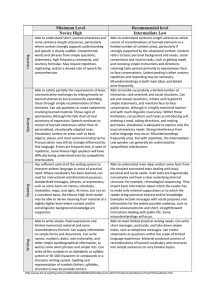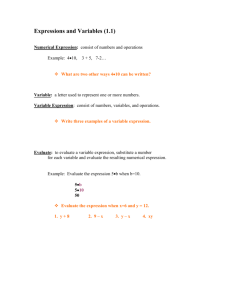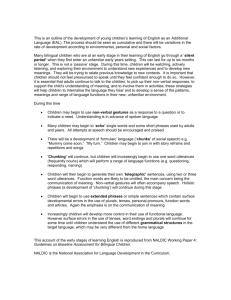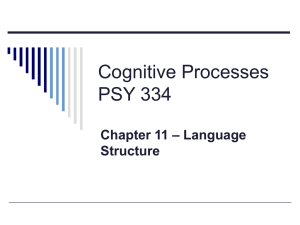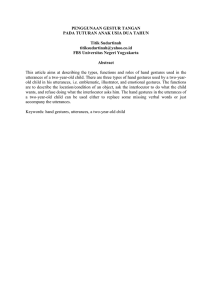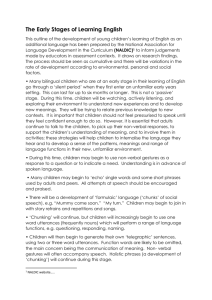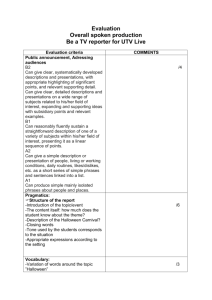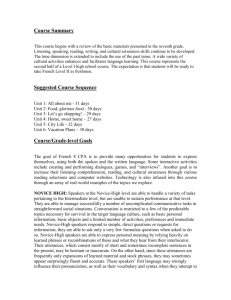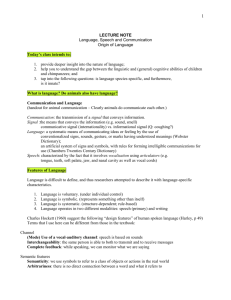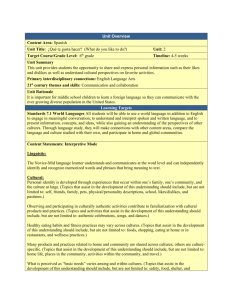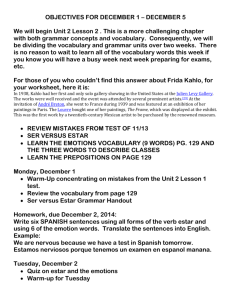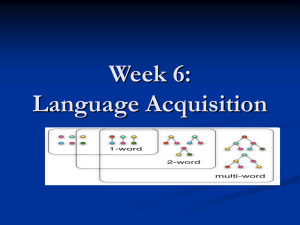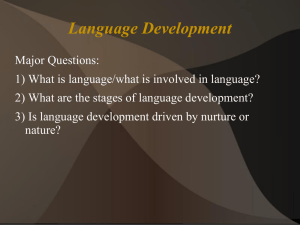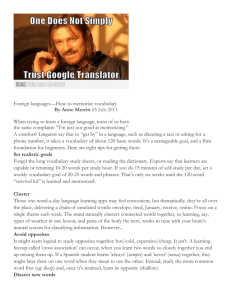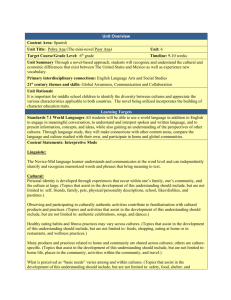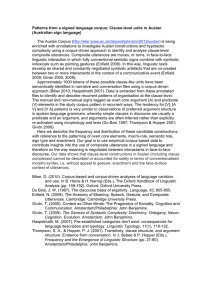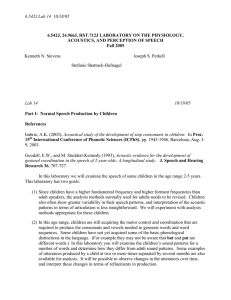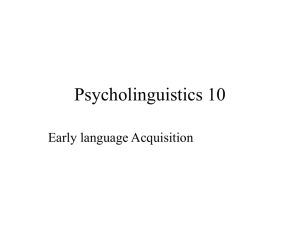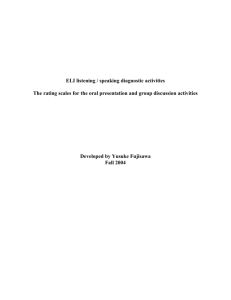ACTFL speaking rubric (.doc)
advertisement
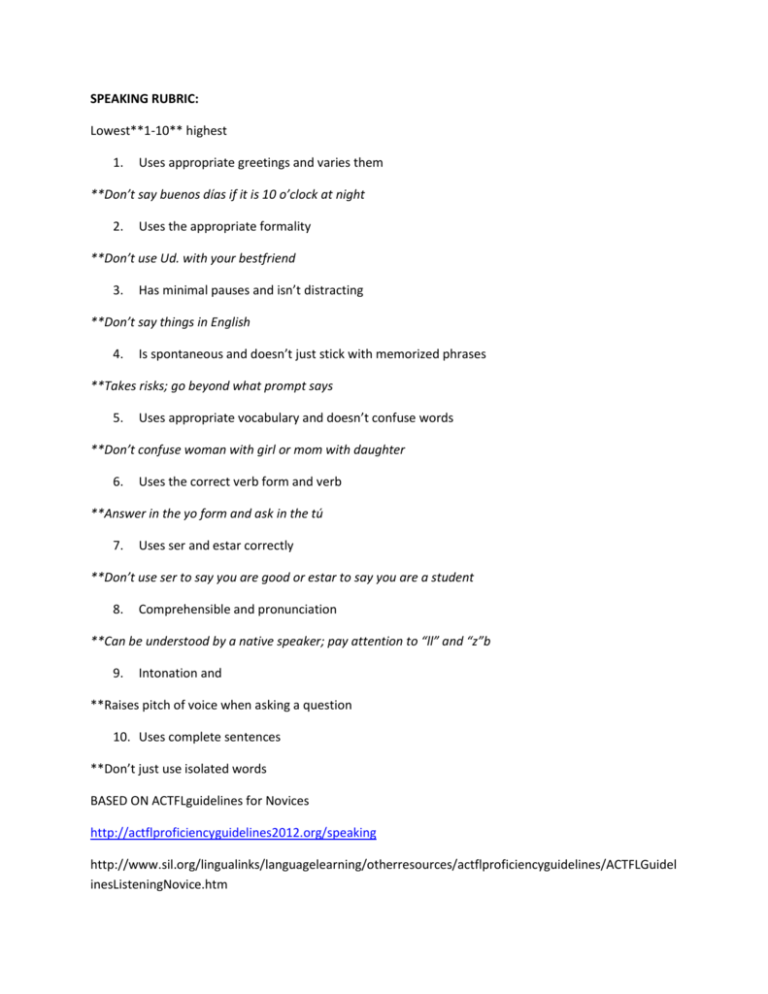
SPEAKING RUBRIC: Lowest**1-10** highest 1. Uses appropriate greetings and varies them **Don’t say buenos días if it is 10 o’clock at night 2. Uses the appropriate formality **Don’t use Ud. with your bestfriend 3. Has minimal pauses and isn’t distracting **Don’t say things in English 4. Is spontaneous and doesn’t just stick with memorized phrases **Takes risks; go beyond what prompt says 5. Uses appropriate vocabulary and doesn’t confuse words **Don’t confuse woman with girl or mom with daughter 6. Uses the correct verb form and verb **Answer in the yo form and ask in the tú 7. Uses ser and estar correctly **Don’t use ser to say you are good or estar to say you are a student 8. Comprehensible and pronunciation **Can be understood by a native speaker; pay attention to “ll” and “z”b 9. Intonation and **Raises pitch of voice when asking a question 10. Uses complete sentences **Don’t just use isolated words BASED ON ACTFLguidelines for Novices http://actflproficiencyguidelines2012.org/speaking http://www.sil.org/lingualinks/languagelearning/otherresources/actflproficiencyguidelines/ACTFLGuidel inesListeningNovice.htm Pars that are incorporated into the rubric are highlighted ACTFL guidelines: Speaking--Novice General Description The Novice level is characterized by the ability to communicate minimally with learned material. Novice-Low Oral production consists of isolated words and perhaps a few high-frequency phrases. Essentially no functional communicative ability. Novice-Mid Oral production continues to consist of isolated words and learned phrases within very predictable areas of need, although quantity is increased. Vocabulary is sufficient only for handling simple, elementary needs and expressing basic courtesies. Utterances rarely consist of more than two or three words and show frequent long pauses and repetition of interlocutor's words. Speaker may have some difficulty producing even the simplest utterances. Some Novice-Mid speakers will be understood only with great difficulty. Novice-High Able to satisfy partially the requirements of basic communicative exchanges by relying heavily on learned utterances but occasionally expanding these through simple recombinations of their elements. Can ask questions or make statements involving learned material. Shows signs of spontaneity although this falls short of real autonomy of expression. Speech continues to consist of learned utterances rather than of personalized, situationally adapted ones. Vocabulary centers on areas such as basic objects, places, and most common kinship terms. Pronunciation may still be strongly influenced by first language. Errors are frequent and, in spite of repetition, some Novice-High speakers will have difficulty being understood even by sympathetic interlocutors.
